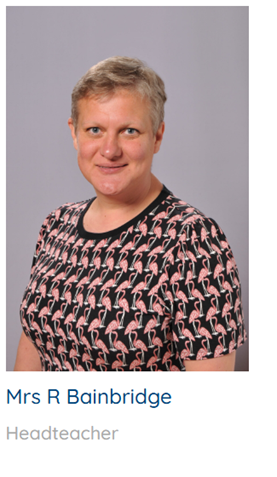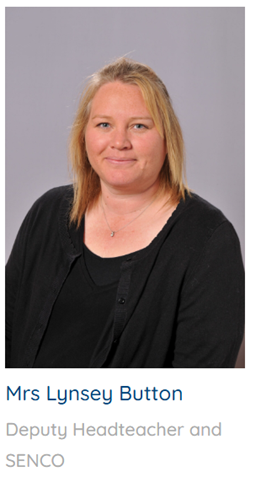Safeguarding Children is a high priority for all who work at Mill Hill Primary School. This page will give you access to all the information regarding Safeguarding in school.
To see the school’s policy click here to be taken to the School Policy Page
Child Protection
Any Child Protection concerns should be directed to Mrs Bainbridge who is the Designated Person for Child Protection in school. Mrs Bainbridge may then pass this concern onto the Social Care Team who will decide on the appropriate action to take. Parents will be informed of this process unless it is felt that this information may put a child in danger. If for any reason Mrs Bainbridge is not available please take concerns to Mrs Button (Assistant Headteacher and Inclusion Manager) who is the deputy safeguarding lead and fully trained in such matters.
If you have concerns about a child you wish to report directly this can be done online via the NSPCC https://www.nspcc.org.uk/keeping-children-safe/reporting-abuse/report/ or their helpline 0808 800 500. Concerns can also be reported to North Yorkshire County Council’s Social care team on 0300 131 2 131.


The start of the school day
Children should not arrive at school before 8.30am. A staff member will be on duty at the front of school from this time. The gate opens at 8.30am and children can come straight into the playground. Class teacher come out onto the playground at 8.40am to meet their class and walk them inside. Registers are taken at 8.50am
At the end of the school day
Parents/carers of children in Nursery can collect their children at 3.15pm. Parents/carers of children in Reception / KS1 will collect their child from outside the classroom at 3.20pm.
Children in KS2 will come out to the playground front of school and find the person who is collecting them at 3.20pm. A member of staff will wait with your child if you are collecting a younger child first. Any children who finds there is no one to meet them will come and report to the school office and then wait in the school entrance. If a parent/carer does not arrive a phone call will be made to arrange how the child is getting home.
When a child is absent from school
When your child is ill we ask that you ring the office on the first day of absence to inform us. There will be someone to take your call from about 8am and messages can be left on the answerphone. If we are not informed the School staff will ring to ensure they know the reason for your child’s absence.
First Aid
We have a number of Qualified First Aiders in school. If a child requires any treatment then an account will be made of the accident in our accident book. If a child has had a bump to the head then a slip will be put in the child’s bag informing parents or carers and the child will get as head bump sticker. If it is felt that the parent/carer should be informed following a more major incident then a phone call will be made home. Following an incident in school, if there is treatment involving a doctor or the hospital, we ask that the School Office is informed.
Medicines in school
School can only give medicines, such as antibiotics, that are prescribed to be taken four times a day. Forms are available from the school office. Children must not keep medicines in their school bag unless they are their personal inhalers. Painkillers can now (NYCC policy) be given to children by our staff but a form must be filled in.
Health Care Plans
It is important that are staff are clear what to do when emergencies arise with children with medical needs. Therefore in these cases we work closely with parents and health care professionals to put together a health care plan. If you feel that your child requires one of these don’t hesitate to contact the school.
We have a wide range of additional procedures ensure that children are kept safe:
- Child Protection Policy
- Lockdown Policy
- First Aid Policy
- Health & Safety Policies and Procedures
- Anti-Bullying Policy
- Race and Disability Policies
- Fire Safety Procedures
- Behaviour Policy
- Safe Internet Use Guidance
- Risk Assessments
- Educational Visits Policy
What is Prevent?
As of the 1st July 2015 all schools and registered childcare providers are subject to a duty to, in the exercise of their functions, have ‘due regard to the need to prevent people from being drawn into terrorism’. This is called the Prevent Duty. Further information on this can be downloaded from the link below.
At Mill Hill Primary School this is seen as part of our school’s wider safeguarding duties and is consistent with our other responsibilities in this area. The procedures we follow are set out in our Child Protection Policy (which can be found in the Policies section).
Where we identify that there is a need to refer an individual, the relevant safeguarding procedures are followed to ensure that an appropriate referral is made to Children’s Social Care or Health and Adult Services in an effective and timely way. To enable us to discharge this duty effectively all colleagues completed the online Channel Training through the Home Office Website.
E-Safety
The online world is rapidly developing and many of our children now have access to devices which enable them to connect to the internet, take images or video and communicate with others. While it is important not to obstruct them from developing skills from using these devices, it is essential that parents support their children in navigating the online world.
Some of the issues related to primary pupils using the internet are:
- Accessing inappropriate content on the internet
- Using ‘mature’ social networking sites, such as Facebook, and connecting with individuals they don’t know
- Being cyberbullied by others on the internet
- Using technology appropriately, e.g. webcams and cameras on mobile devices
- Sharing personal information with others they don’t know on the internet.
- Playing video games with adult rating, e.g. Call of Duty.
If you feel that your child is being groomed or abused online, then use the Child Exploitation Online Protection (CEOP) Centre’s reporting form: ceop.police.uk/safety-centre/
THE IMPORTANT MESSAGE IS THAT PRIMARY-AGED CHILDREN CAN SPEAK TO A RESPONSIBLE ADULT IF THEY FEEL WORRIED ABOUT SOMETHING RELATED TO THE INTERNET.